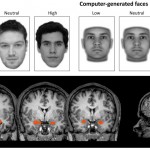How Free Will Collides with Unconscious Impulses
At a restaurant recently I faced many temptations: a heavy stout beer, a buttery escargot appetizer, a marbled steak, cheesecake. The neural networks in my brain that have evolved to produce the emotion of hunger for sweet and fatty foods, which in our ancestral environment were both rare and sustaining, were firing away to get me to make those selections. In competition were signals from other neural networks that have evolved to make me care about my future health, in particular how I view my body image for status among males and appeal to females and how sluggish I feel after a rich meal and the amount of exercise I will need to counter it. In the end, I ordered a light beer, salmon and a salad with vinaigrette dressing and split a mildly rich chocolate cake with my companion.
Was I free to make these choices? According to neuroscientist Sam Harris in his luminous new book Free Will (Free Press, 2012), I was not. “Free will is an illusion,” Harris writes. “Our wills are simply not of our own making.” Every step in the causal chain above is fully determined by forces and conditions not of my choosing, from my evolved taste preferences to my learned social status concerns—causal pathways laid down by my ancestors and parents, culture and society, peer groups and friends, mentors and teachers, and historical contingencies going all the way back to my birth and before.
Neuroscience supports this belief. The late physiologist Benjamin Libet noted in EEG readings of subjects engaged in a task requiring them to press a button when they felt like it that half a second before the decision was consciously made the brain’s motor cortex lit up. Research has extended the time between subcortical brain activation and conscious awareness to a full seven to 10 seconds. A new study found activity in a tiny clump of 256 neurons that enabled scientists to predict with 80 percent accuracy which choice a subject would make before the person himself knew. Very likely, just before I became consciously aware of my menu selections, part of my brain had already made those choices. “Thoughts and intentions emerge from background causes of which we are unaware and over which we exert no conscious control,” Harris concludes. “We do not have the freedom we think we have.”
True enough. But if we define free will as the power to do otherwise, the choice to veto one impulse over another is free won’t. Free won’t is veto power over innumerable neural impulses tempting us to act in one way, such that our decision to act in another way is a real choice. I could have had the steak—and I have—but by engaging in certain self-control techniques that remind me of other competing impulses, I vetoed one set of selections for another.
Support for this hypothesis may be found in a 2007 study in the Journal of Neuroscience by neuroscientists Marcel Brass and Patrick Haggard, who employed a task similar to that used by Libet but in which subjects could veto their initial decision to press a button at the last moment. The scientists discovered a specific brain area called the left dorsal frontomedian cortex that becomes activated during such intentional inhibitions of an action: “Our results suggest that the human brain network for intentional action includes a control structure for self-initiated inhibition or withholding of intended actions.” That’s free won’t.
In addition, a system has “degrees of freedom,” or a range of options that may result from its complexity and the number of intervening variables. Ants have a few degrees, rats more, chimps many more still, humans the most. Some people—psychopaths, the brain-damaged, the severely depressed or the chemically addicted—have fewer degrees than others, and the law adjusts for their lowered capacity for legal and moral accountability.
These vetoing neural impulses within a complex system with many degrees of freedom are part of the deterministic universe.Thinking of volition as a component of the causal net lets us restore personal responsibility to its rightful place in a civil society.


